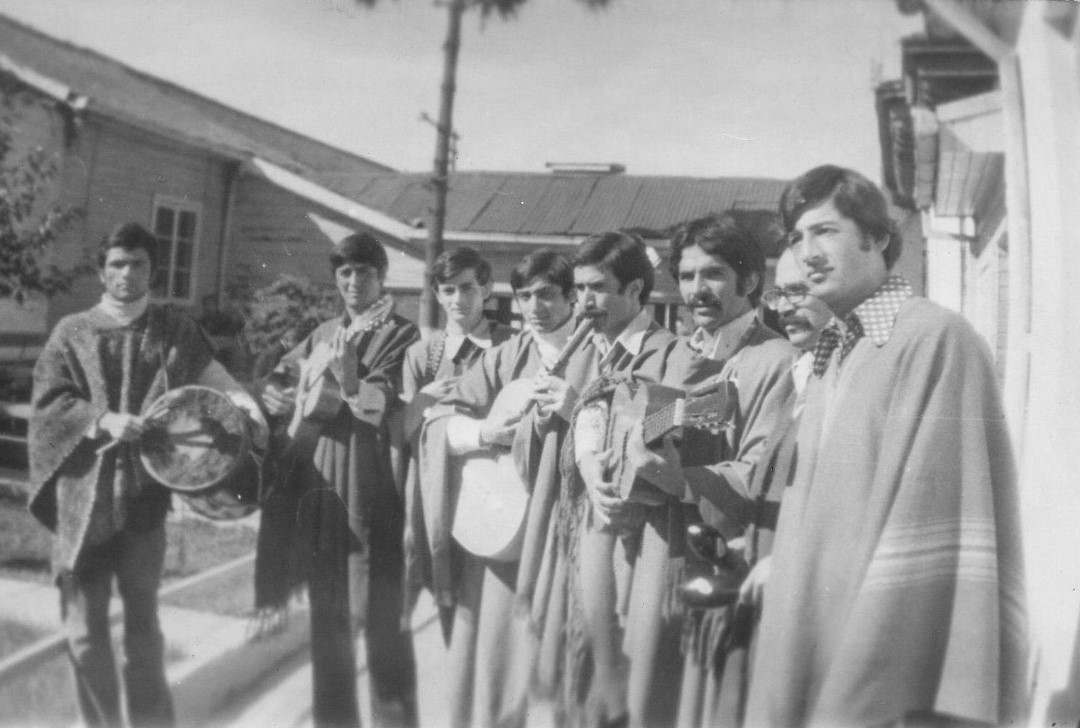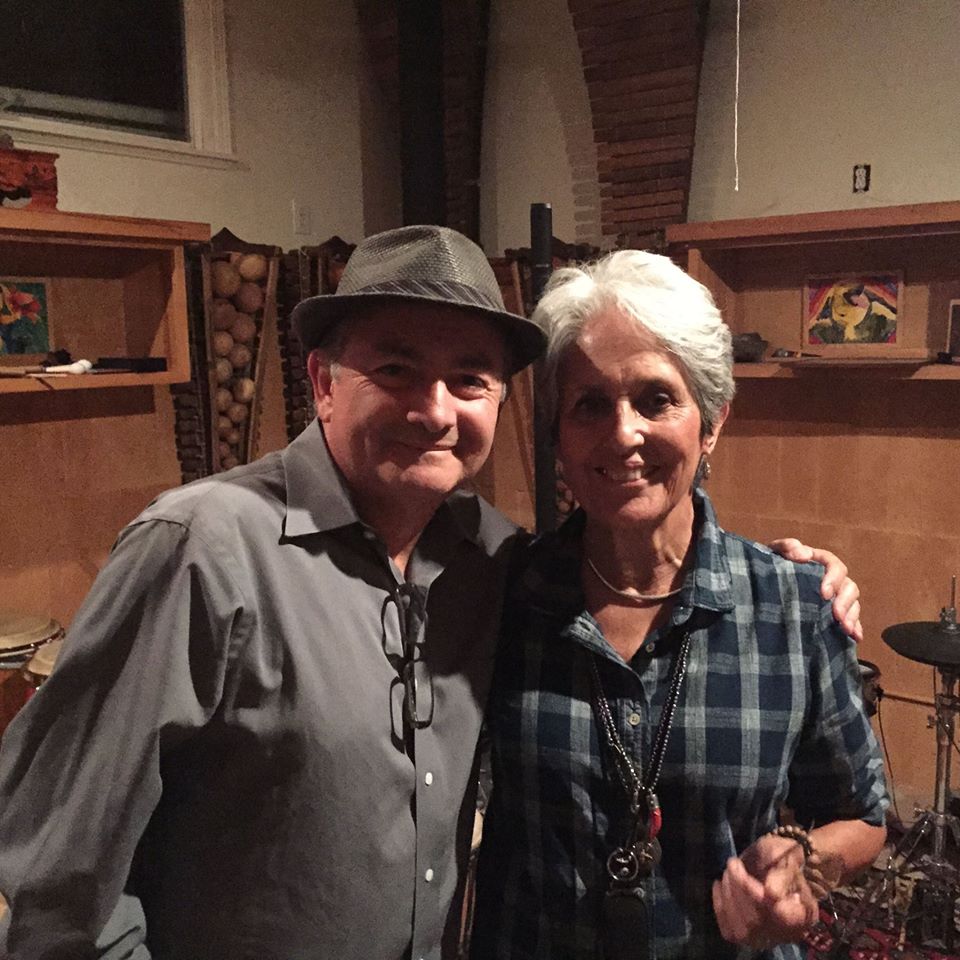 Cantos Cautivos
Cantos Cautivos
We Shall Overcome
- Music piece by:Attributed to Charles Albert Tindley
- Testimony by:Héctor Salgado
- Experience in:Cárcel de Concepción / Cárcel El Manzano, December 1974
I would like to add, to the testimony of Alfonso Padilla, a picture of the musical group that performed the

The picture of the group was taken the same day a photographer was allowed to come in and take passport pictures for the people that were being exiled.
In the picture, I was 17 years old and I am third from left to right. The picture of the musical group was taken after Padilla was exiled to Finland.
In 2017, I was invited with a friend to Joan Baez's house in California for dinner. During dinner, I mentioned her the story of 'We Shall Overcome' at the Jail of Concepción. She was very moved and grateful that under those conditions we were able to sing that song.

Tags:
Published on: 30 March 2019
oh, deep in my heart, (I know that) I do believe
we shall overcome someday.
We'll walk hand in hand, we'll walk hand in hand
we'll walk hand in hand someday
oh, deep in my heart, I do believe
we shall overcome someday.
We are not afraid, we are not afraid
we are not afraid today
oh, deep in my heart, I do believe
we shall overcome someday.
We shall live in peace, we shall live in peace
we shall live in peace someday
oh, deep in my heart, I do believe
we shall overcome someday.
Related testimonies:
- May the Omelette Flip Over (Que la tortilla se vuelva) Claudio Melgarejo, Comisaría de Concepción, November 1973
I spent a week in captivity, in November 1973. I didn’t hear many songs, but the most popular ones sung by my comrades were 'Venceremos' (We Shall be Victorious) and 'Que la tortilla se vuelva' (May the Omelette Flip Over), also known as 'The Tomato Song', which portrays the bosses' exploitation of the workers.
- Free (Libre) Marianella Ubilla, Campamento Prisioneros Estadio Regional, Christmas 1973
I was taken prisoner on 23 November 1973, at the University of Concepción. In the Regional Stadium of Concepción, we had to sing the National Anthem every day.
- I’m Not from Here - To my Comrade, my Love (No soy de aquí - A mi compañera) Alfonso Padilla Silva, Campamento Prisioneros Estadio Regional, 25 December 1973
The choir of male prisoners sang a piece called 'A mi compañera' (To my comrade, my love) to the music of 'No soy de aquí, ni soy de allá' (I'm not from here, nor from there) by Facundo Cabral.
- We Shall Overcome Alfonso Padilla Silva, Cárcel de Concepción / Cárcel El Manzano, December 1974
When the concentration camp that operated for nearly five months at the Regional Stadium of Concepción was closed in early February 1974, hundreds of political prisoners were transferred to the Concepción Prison, a wing of which was turned into a concentration camp.
- The Rain is Falling (Scende la pioggia) Eduardo René Cuevas, Cárcel de Los Ángeles, September 1973
This song was a workhorse for the prisoners. Iván Moscoso sang it, accompanied by a guitar, in a powerful and defiant voice, and the most altruistic among us sung along in the presence of the gendarme guards, in a courtyard that was only for political prisoners.
Testimonies from the Cantos Cautivos platform can be cited and shared as long as they are attributed (including the author, our project’s name and URL), for non-commercial purposes and without modifications, as per the Attribution-NonCommercial-NoDerivatives Creative Commons licence (CC BY-NC-ND 4.0). Authorisation is required for 1) any reuse different from citations and sharing via the CC BY-NC-ND 4.0 license of the platform data and its associated metadata, and 2) any use in events, concerts, plays, films, etc., of musical works written or recorded by project participants. To that end, we request that you send a proposal at least one month in advance to contact@cantoscautivos.org. For uses of musical works written or recorded by people outside the project, please contact copyright holders.